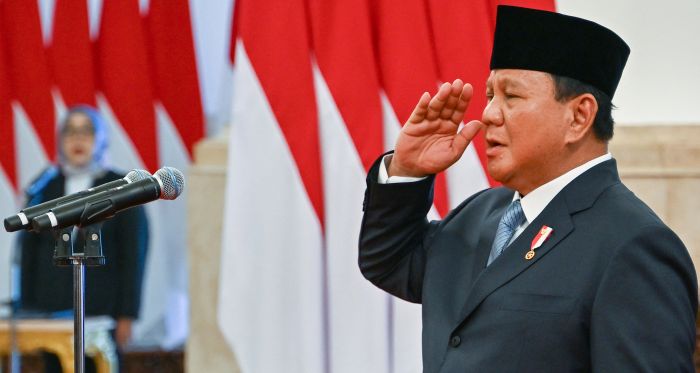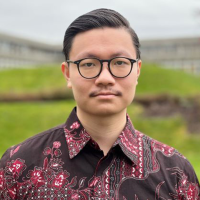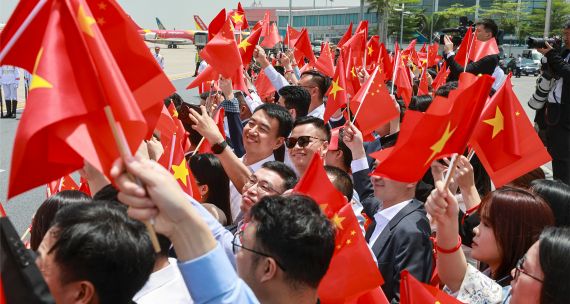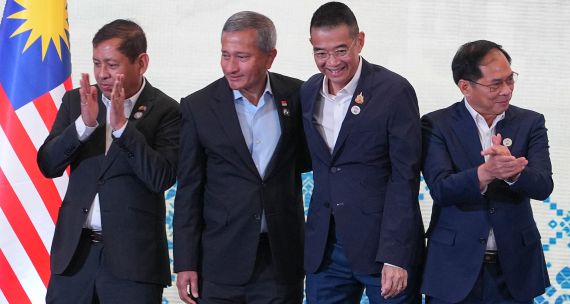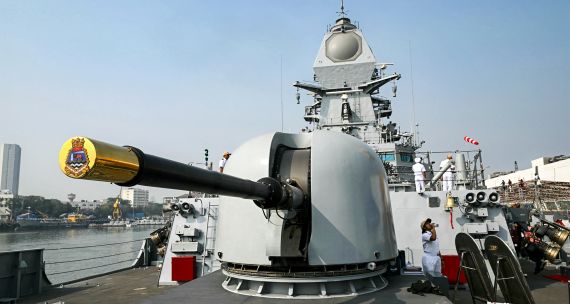The Takeaway
On October 20, Prabowo Subianto was inaugurated as Indonesia's eighth president, succeeding Joko Widodo (Jokowi). Prabowo, a former defence minister (2019–24), has indicated that he is committed to Indonesia’s long-standing “free and active” foreign policy, emphasizing non-alignment and strategic autonomy. There are also signs that Prabowo will take a more ‘hands-on' approach to foreign policy, contrasting with Jokowi’s more domestically focused agenda.
While Prabowo is expected to strengthen unity within ASEAN, he will nevertheless reiterate the bloc’s stance of non-interference on regional challenges, such as South China Sea disputes and Myanmar’s civil war.
His administration will also likely try to balance relations with major powers such as China, Russia, and the United States.
In Brief
- Prabowo appointed his close confidant Sugiono, a former first lieutenant in the Indonesian army, as his foreign minister. While Sugiono has a background in legislative matters, his lack of formal diplomatic experience has led to criticisms that he will be merely a “rubber stamp official,” allowing Prabowo himself to dominate foreign affairs.
- Unlike his predecessor, Prabowo is expected to take a proactive approach to international affairs, continuing Indonesia's hallmark "free and active" foreign policy. This approach, as evidenced by the country’s continued close ties with both U.S. and China, emphasizes non-alignment with major powers and prioritizes national interests. It ensures strategic autonomy and promotes active participation in global diplomacy.
- In September 2024, Prabowo, as defence minister, embarked on a tour across Southeast Asia, visiting key partners, including the Philippines, Thailand, and the 2025 chair of ASEAN, Malaysia, to affirm Indonesia’s solidarity and position the nation as a regional leader within ASEAN.
Implications
Indonesia, under Prabowo, is likely to endorse ASEAN’s ‘hands-off’ approach to Myanmar. Prabowo has consistently emphasized the principle of non-intervention, asserting that the organization can only support Myanmar in developing its own resolutions for peace. He has also urged the country’s military junta to implement the ASEAN Five Point Consensus (5PC), which calls for an immediate cessation of violence and inclusive peace talks between the military, the government in exile, and civil society groups. Although progress on the 5PC has been glacial, at best, the ASEAN bloc recently reaffirmed its commitment to the plan.
Prabowo is expected to maintain a passive approach to China’s activities in Indonesia’s maritime zones. While Indonesia is not a claimant state to the ongoing territorial disputes in the South China Sea, Chinese vessels have been increasingly spotted within Indonesia’s exclusive economic zone (EEZ) in the North Natuna Sea, an area claimed by Beijing. On October 24, 2024, Indonesia’s coast guard forced a Chinese patrol boat to retreat from its maritime zones, the second such occurrence within a week. Traditionally, Indonesia has maintained a non-confrontational stance towards China’s ongoing claims in the North Natuna Sea, over fears of antagonizing Beijing, its largest trading partner. While Prabowo is set to maintain this approach of downplaying maritime disputes, he will continue to strengthen Indonesia’s military and maritime capabilities through the Minimum Essential Force (MEF) plan, focusing on upgrading its vessels.
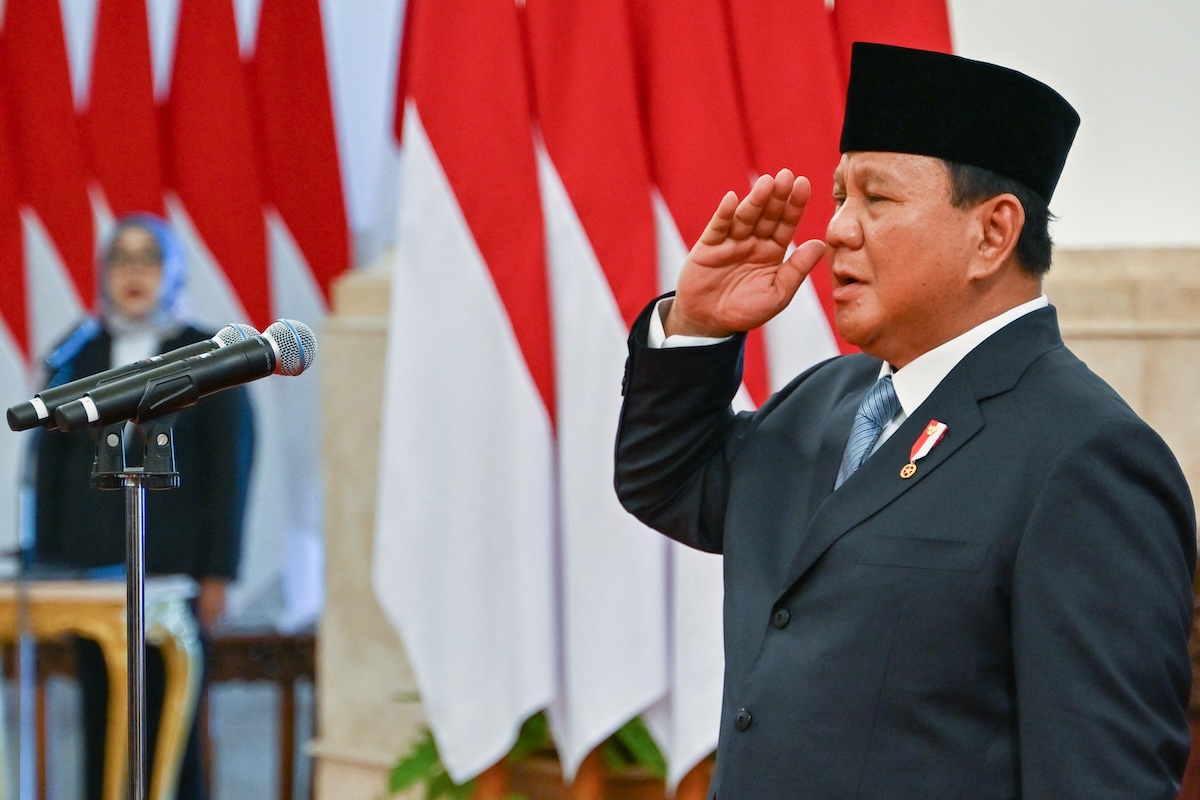
Security ties with the U.S. are expected to remain important but will need to be balanced with expanding economic ties with China. As defence minister, Prabowo reinforced U.S.-Indonesia military co-operation and maritime security. Indonesia has used its close security ties with the U.S. as a counterbalance to keep China’s growing influence in the region in check. In August 2024, Indonesia and the U.S. conducted their annual joint military exercise, Super Garuda Shield, with participation from multiple Western powers, including Canada. In May 2024, Washington and Jakarta held the 30th Cooperation Afloat Readiness and Training, enhancing Indonesia’s maritime response capabilities amid ongoing Chinese territorial claims.
Meanwhile, China is Indonesia’s largest economic partner and investor, with bilateral trade reaching C$176.1 billion in 2023 and Chinese foreign direct investment totalling C$10.3 billion. With Prabowo targeting an eight per cent annual growth rate in his first three years, economic relations with China are expected to be fortified. Prabowo has committed to expanding on his predecessor's critical minerals initiatives, promoting a domestic electric vehicle supply chain and enforcing local processing of critical minerals to attract further Chinese investment. These efforts are anticipated to boost Chinese investment in Indonesia, which currently stands at C$41.6 billion. Between 2003 and 2019, Canadian businesses invested over C$900 million in the country’s mining sector.
What’s Next
Opportunities for tightening Canada-Indonesia trade, diplomatic ties
Under Canada’s Indo-Pacific Strategy, Ottawa appointed Paul Thoppil, a former assistant deputy minister at Global Affairs Canada, as its first Indo-Pacific trade representative, stationed in Jakarta, to strengthen Canada-Indonesia trade and investment ties. A Canadian trade mission to Indonesia is planned for December 2024 to further expand regional market access.
Bilateral merchandise trade between Canada and Indonesia reached C$6.24 billion in 2022. The Canada-Indonesia Comprehensive Economic Partnership Agreement is anticipated to be finalized by the end of 2024, while the Canada-ASEAN Free Trade Agreement is projected to conclude by 2025.
In September 2024, Indonesia requested to join the Comprehensive and Progressive Agreement for Trans-Pacific Partnership (CPTPP). Canada is serving as the CPTPP Commission chair in 2024. While Prabowo has yet to formally endorse the move, the agreement aligns with his economic goals by boosting Indonesian exports, attracting foreign investment, and expanding market access.
As Prabowo enhances Indonesia's role within ASEAN, he may advocate for greater inclusion of countries like Canada in ASEAN’s multilateral forums. He had previously suggested expanding the ASEAN Defence Ministers’ Meeting Plus membership, an initiative in which Canada has expressed an interest.
• Edited by Erin Williams, Senior Program Manager, Vina Nadjibulla, Vice-President Research & Strategy, and Ted Fraser, Senior Editor, APF Canada
